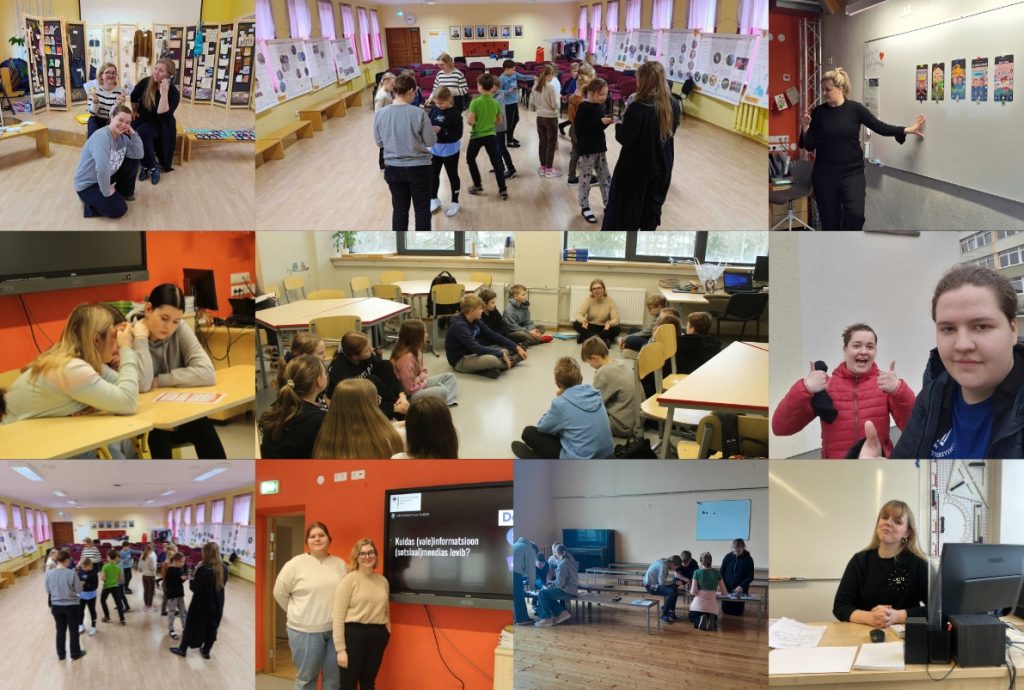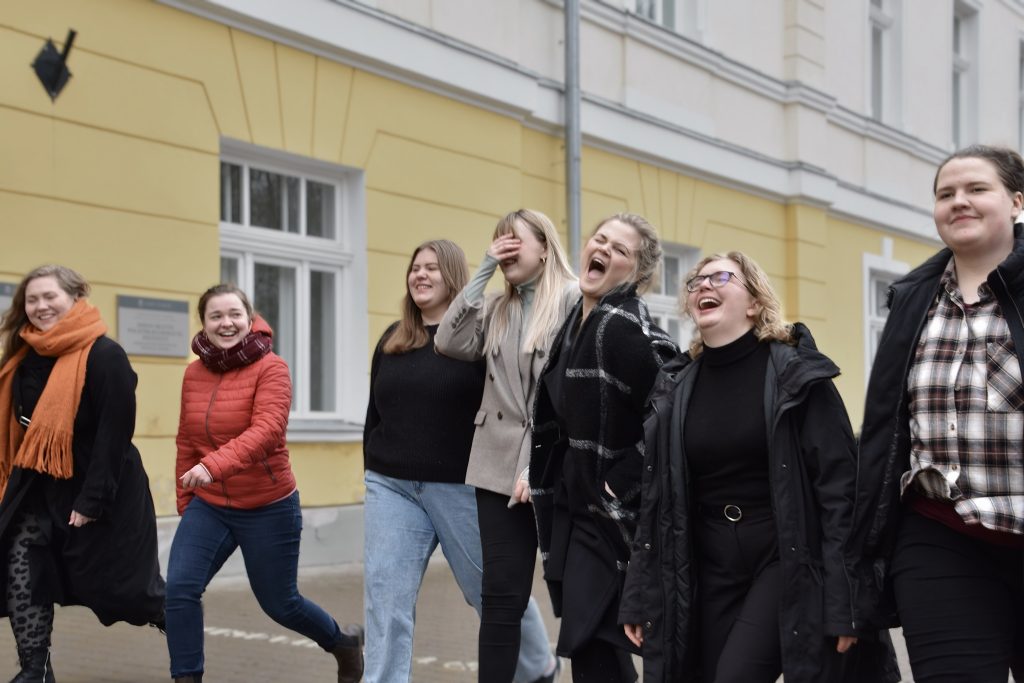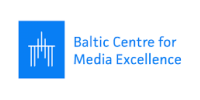Media Club as a Project Management Crash Course
BECID was an official partner of the Media Club project, which was launched in March 2024 and funded by the Embassy of the Federal Republic of Germany. As part of this project, University of Tartu students organized 140 workshops over three months to develop digital media skills in kindergartens and grades 1–9 across Estonia, focusing on rural areas.

The Media Club experience highlights the importance of making project funding available to students and allowing them to coordinate projects. One of the two project coordinators, Gretel Juhansoo, was a bachelor’s student at the University of Tartu during the project application and most of the implementation period. This demonstrates how offering students the chance to lead projects can be instrumental not only in their personal development, especially regarding their studies and project management, but also in ensuring that new ideas and perspectives relevant to younger generations – one of the main target groups in media literacy initiatives – can be effectively executed.

Securing project funding can often feel daunting and unfamiliar, especially for students who may not have prior experience in navigating the application process. However, if you have a compelling idea and have conducted a thorough analysis to ensure its workability within your field, rest assured that enthusiastic individuals are eager to support you in turning your vision into reality. For instance, Erasmus+ and the European Union offer avenues for funding and support for projects aimed towards younger generations.
More importantly, the workshops were conducted by University of Tartu undergraduate students Karmen Laur, Kerttu Kuku, Merilin Miks, Raili Randmäe, and Katriin Kersen. The five students’ fields of study range widely, from biology and political science to youth and social work. The multifaceted student network proved crucial for conducting the workshops and ensuring the sustainability of media education. The members of the Media Club are truly enthusiastic young people who were united by either a personal or professional interest in media. Hopefully, through mutual communication and mentor support, students will find the motivation to cultivate the knowledge and skills acquired during the project in the future as well.

As a result of the project, both children’s and teachers’ media literacy improved. Teachers were exposed to innovative methods for teaching media literacy, gaining valuable insights by observing how students responded to various internet safety and media literacy topics. This hands-on experience allowed teachers to understand students’ knowledge and reactions better, providing a practical foundation for future media literacy education.
Educational institutions consider this topic extremely important. All 140 workshops were booked within the first five hours after the registration link was sent out. Thus, during this academic year, the Media Club reached classes in 19 different schools across six counties and one kindergarten, training over a thousand children and young people.
Schools that were visited during the project:
Viluste Põhikool
Jõgeva Põhikool
Kõrveküla Põhikool
Osula Põhikool
Vastseliina Gümnaasium
Väätsa Põhikool
Räpina Ühisgümnaasium
Põlva Kool
Krootuse Põhikool
Saverna Põhikool
Elva Gümnaasium
Tõrva Gümnaasium
Mehikoorma Põhikool
Juhan Liivi nimeline Alatskivi Kool
Valga Põhikool
C. R. Jakobsoni nimeline Torma Põhikool
Suure-Jaani lasteaia Traksiku ja Sipsiku majad
Nõo Põhikool
Luunja Keskkool





